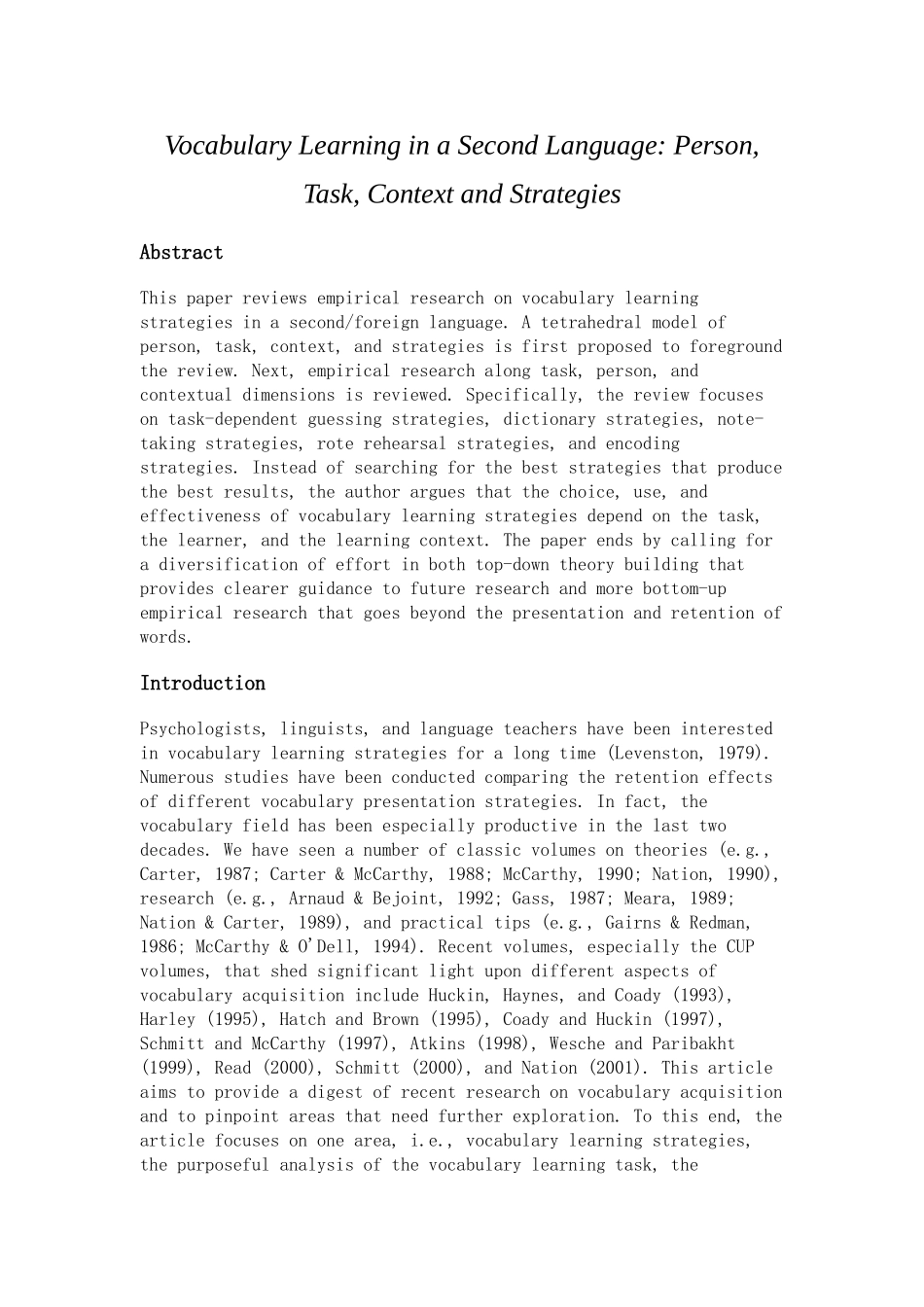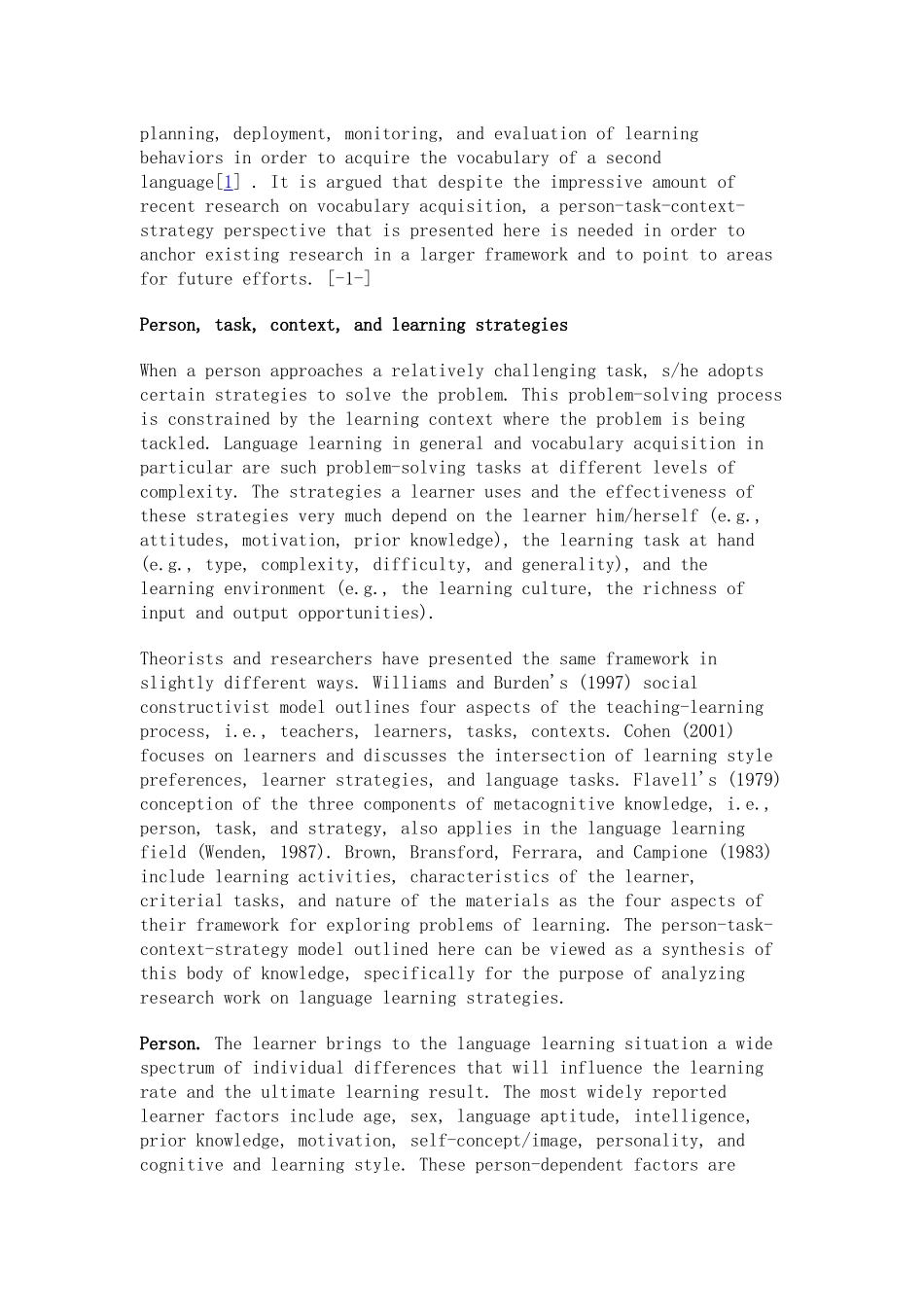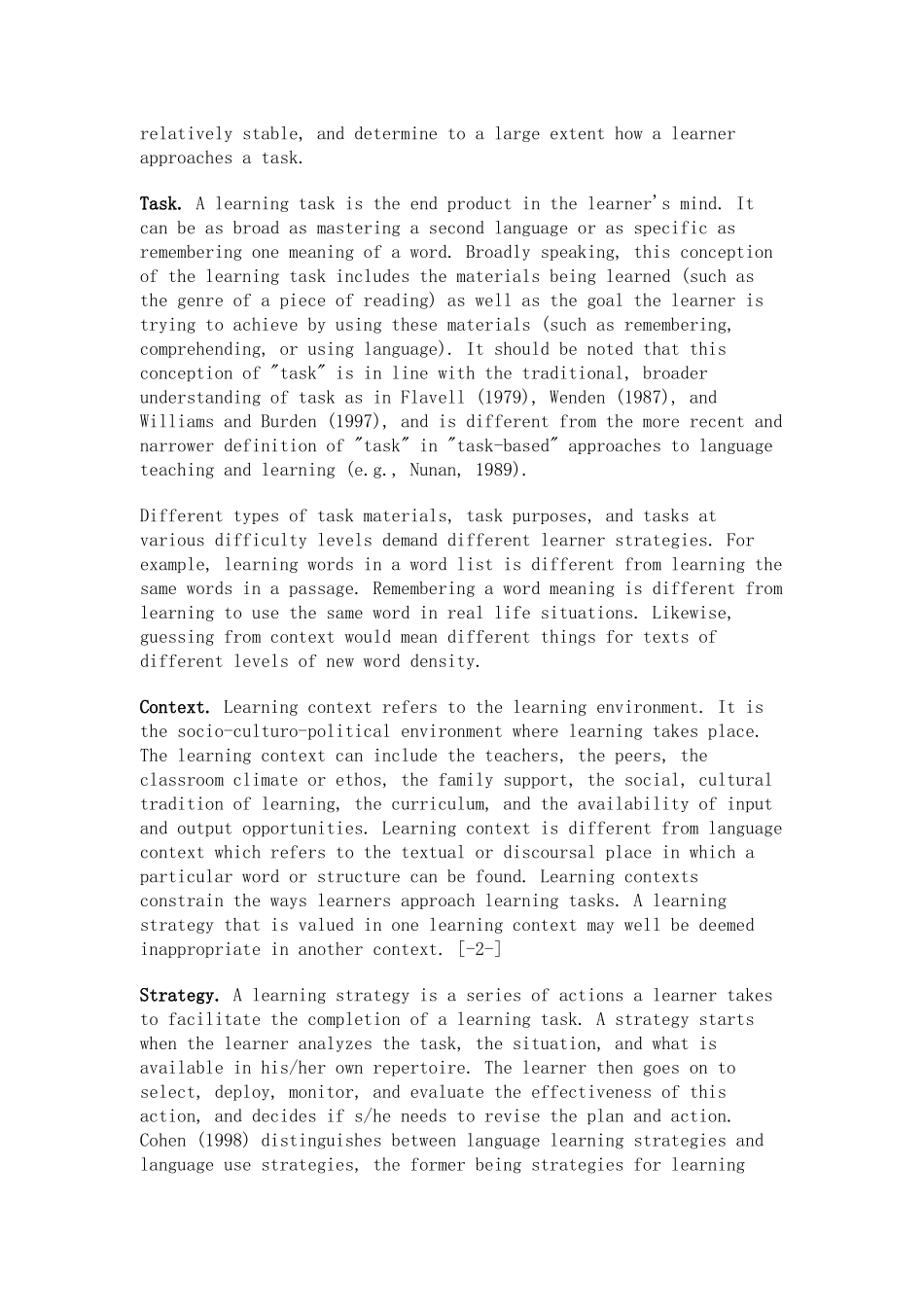Vocabulary Learning in a Second Language: Person, Task, Context and StrategiesAbstractThis paper reviews empirical research on vocabulary learning strategies in a second/foreign language. A tetrahedral model of person, task, context, and strategies is first proposed to foreground the review. Next, empirical research along task, person, and contextual dimensions is reviewed. Specifically, the review focuses on task-dependent guessing strategies, dictionary strategies, note-taking strategies, rote rehearsal strategies, and encoding strategies. Instead of searching for the best strategies that produce the best results, the author argues that the choice, use, and effectiveness of vocabulary learning strategies depend on the task, the learner, and the learning context. The paper ends by calling for a diversification of effort in both top-down theory building that provides clearer guidance to future research and more bottom-up empirical research that goes beyond the presentation and retention of words. IntroductionPsychologists, linguists, and language teachers have been interested in vocabulary learning strategies for a long time (Levenston, 1979). Numerous studies have been conducted comparing the retention effects of different vocabulary presentation strategies. In fact, the vocabulary field has been especially productive in the last two decades. We have seen a number of classic volumes on theories (e.g., Carter, 1987; Carter & McCarthy, 1988; McCarthy, 1990; Nation, 1990), research (e.g., Arnaud & Bejoint, 1992; Gass, 1987; Meara, 1989; Nation & Carter, 1989), and practical tips (e.g., Gairns & Redman, 1986; McCarthy & O'Dell, 1994). Recent volumes, especially the CUP volumes, that shed significant light upon different aspect...


